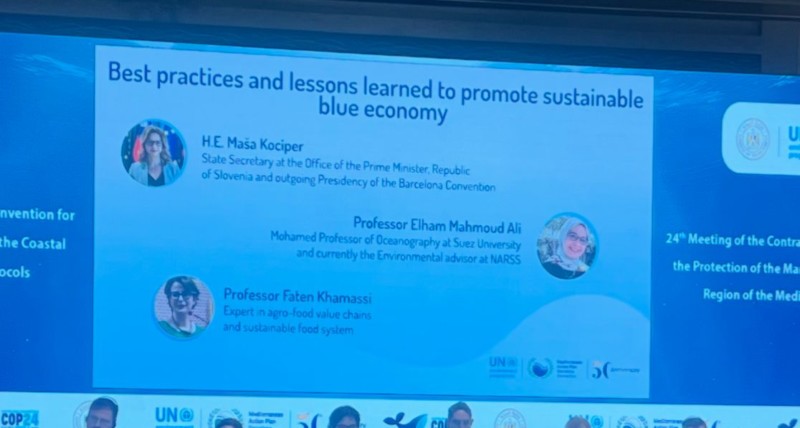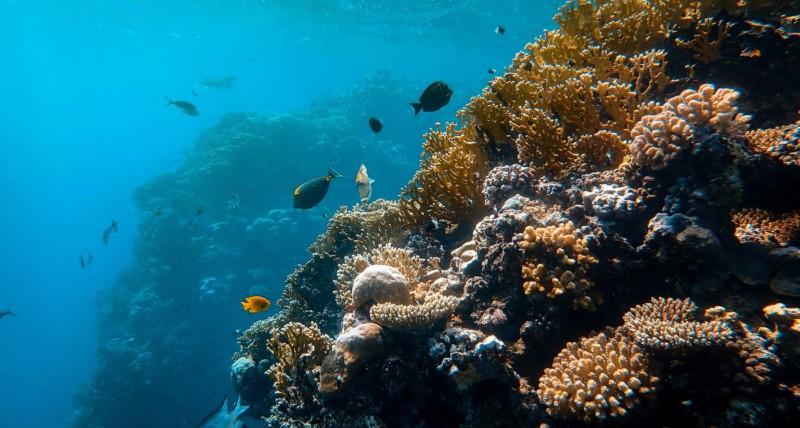
The National Strategy for Global and Sectoral Circular Waste Management 2035-2050 in Tunisia was presented to Maghreb journalists (Tunisian, Algerian, and Moroccan). This occurred during a regional workshop recently held in Tunis by the « Africa 21 » network, in partnership with the Ministry of Environment and Sustainable Development, the Tunisian Media Support Program (PAMT2), with financial support from the European Union (EU), the Swiss Embassy in Tunis, and the German International Cooperation Agency (GIZ).
Presented by Sondes Fnaiech, eco-advisor, lawyer, and member of the National Forum on Climate Change Adaptation in Tunisia (FNACC), as part of a session on the « Tunisian Landscape of the Circular Economy, » this strategy, which hinges on the circular economy as a vital pathway to address climate change, includes three sectoral components: plastic management, composting from household and related waste, and recycling of rubble and demolition waste.
Three Key Objectives
For plastics, three main goals have been identified:
- Reducing the consumption and production of plastic objects.
- Enabling a circular economy in plastic production to protect the environment and human health.
- Ensuring environmentally sound management and recycling of plastic waste.
Non-biodegradable plastics are a significant source of environmental pollution, with medium- and long-term impacts on human health, soil, and marine ecosystems. In Tunisia, 4.2 billion plastic bags are used annually.
According to a World Bank (WB) report, Tunisia generates 2.8 million tons of household waste per year, 9.4% of which is plastic waste.
The plastics sector in Tunisia comprises at least 283 companies, including 79 fully export-oriented businesses. The annual quantity of mismanaged plastic waste is estimated at 55,500 tons, according to the same WB report.
The WB also notes that plastic pollution is a major threat to Tunisia’s blue economy. The country faces annual economic losses from plastic pollution estimated at $170 million to $561 million, according to the report on « The Plastic-Free Coast Strategy and Operational Action Plan for Tunisia 2035. »
Despite regulatory (the January 16, 2020 decree) and governmental initiatives, such as the Eco-Lef project—the first African waste management system aimed at reducing pollution—and the presence of companies processing thousands of tons of waste annually, Tunisia’s recycling sector still suffers from a lack of organization and a clear regulatory framework. This issue was highlighted during the discussions at the regional workshop on « Circular Economy and Climate Change in the Maghreb. »
Most initiatives face obstacles such as unfair competition from the informal sector and a lack of incentives for companies adhering to standards. As a result, the majority of plastic waste ends up in landfills or the natural environment, worsening the environmental crisis.
Reducing Landfilling and Minimizing Environmental Impact
Additionally, Sondes Fnaiech pointed out that the national public waste management system generally aims to reduce landfilling and minimize the environmental impact of waste. However, it lacks an effective public awareness strategy to highlight the serious risks of failing to realize the full potential of these initiatives.
“Education and awareness are essential for promoting responsible and informed consumption behavior,” said Fnaiech. She acknowledged that regulatory barriers and bureaucracy are significant hurdles preventing the real takeoff of the circular economy in Tunisia.
SDG No. 12
Speaking remotely about Sustainable Development Goal (SDG) No. 12 and plastic negotiations, Chantal Line Carpentier, Head of the Trade, Environment, Climate Change, and Sustainable Development Division at the United Nations Conference on Trade and Development (UNCTAD), reminded participants that this goal seeks to ensure sustainable consumption and production patterns, which are essential to preserving livelihoods for present and future generations.
Indeed, UNCTAD asserts that if the global population reaches 9.8 billion by 2050, the equivalent of nearly three planets will be needed to supply the natural resources essential to maintaining current lifestyles.
This underscores the need, according to the UN expert, to reduce the production of plastic products at the source—an arduous task for a lucrative industry. In 2021, 369 million tons of plastics were traded globally, valued at $1.2 trillion—a 30% increase since 2020.
She emphasized that UNCTAD advocates for identifying a range of biodegradable alternatives or substitutes (based on plants, fibers, cotton, algae, etc.) to plastic materials and products, as well as promoting circularity and recycling. Plastics are traded globally, but the waste often stays behind due to a lack of recycling capacity.
56 Billion Tons of Plastic Globally
If the current trend in global plastic production continues, greenhouse gas (GHG) emissions from plastic production between 2015 and 2050 will exceed 56 billion tons—equivalent to 10-13% of global emissions.
However, transitioning to a circular economy model for plastics, incorporating approaches such as eco-design, reduction, reuse, and recycling throughout a product’s lifecycle, could significantly reduce GHG emissions, improve resource management, and stimulate innovation, as well as create new direct and indirect jobs.
The Network of African Journalists Specializing in Sustainable Development and Climate Change is a program by the « Africa 21 » association launched in 2019. Today, it includes over 850 journalists from print, radio, and television across 43 African countries.
Source: leconomistemaghrebin



